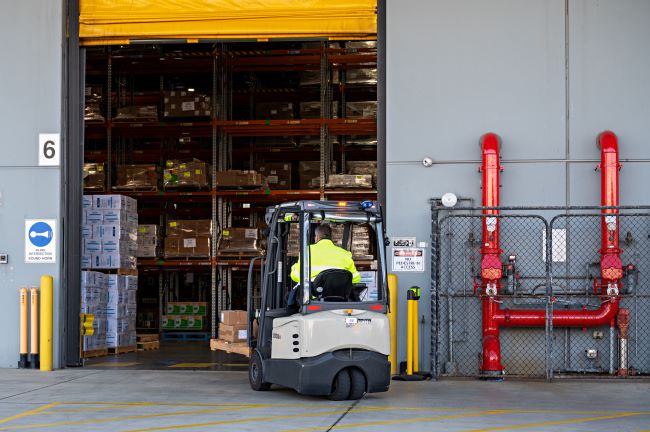29 May 2025
Supplies of sterile skin preparation products stabilise following TGA recall

Supplies of chlorhexidine and alcohol preparation pads have stabilised after three Reynard skin preparation products were recalled by the Therapeutic Goods Administration (TGA) in March.
The TGA issued a critical quarantine and recall due to reported cases of Achromobacter contamination at Reynard’s manufacturing site in China. The products affected are used in high volumes by Victorian health services - adhesive removal wipes, alcohol preparation pads and alcohol/chlorhexidine swabsticks.
The Achromobacter species can potentially result in serious infections including sepsis and meningitis, which may be life-threatening for patients with compromised immune systems.
Supplies of the products are expected to stabilise by 30 June as Reynard increases production at another manufacturing site.
Alcohol preparation pads and swabsticks are used prior to injections and procedures to minimise the risk of infection.
Following the TGA recall, HSV purchased alternative products for health services and worked alongside the Department of Health, Safer Care Victoria and Victorian health service clinicians as part of a state response to address the issue.
HealthShare Victoria’s Supply Chain Surety team worked with suppliers to store and distribute the sterile skin preparation pads and swabsticks to health services across the state.
HSV Supply Chain Specialist Manni Deol said HSV reacted quickly to the TGA alert, which was key to successful management of the resulting supply issues.
“A purchase order was issued very quickly for alternative products which meant suppliers were able to start securing available stock on our behalf from overseas at the earliest opportunity,” he says.
“HSV allocated the stock based on historical usage at each health service. Our distribution centres did a great job of allocating and transporting the products to 48 health services across Victoria.”
Manni says the supply constraints caused by the urgent recall were among the most significant HSV has handled in recent years.
“The lessons we’ve learned will help us to improve the way we manage similar events in the future.”
Clinical Products Manager at Austin Health, Danni Baker says it would have been difficult for health services to find an alternative supplier because Victorian hospitals typically purchased most of their stock from Reynard.
“It was great that HSV took a statewide procurement approach to this issue, because they have more negotiating power than an individual health service would. They were able to source alternative products and allocate them fairly across the state so that everyone was supported,” she says.
“If each health service had to approach suppliers individually it would have impacted inventory, particularly for smaller regional health services that don’t have the same resources that the metros do.”
Austin Health, which delivers services to patients across four major sites in metropolitan Melbourne, uses around 8000 chlorhexidine and alcohol skin preparation pads each day, says Danni.
Clinical Product Advisors at the health services worked with HSV to propose alternative clinical practices such as antiseptic skin preparation solutions, to alleviate pressure on supplies of skin preparation pads.
Further information on the Reynard recall can be found on the Department of Health website. HSV’s Supply Chain Surety team will continue to provide updates to health services as more information becomes available.
If you have any concerns, please contact email the team at supplychainsurety@healthsharevic.org.au.